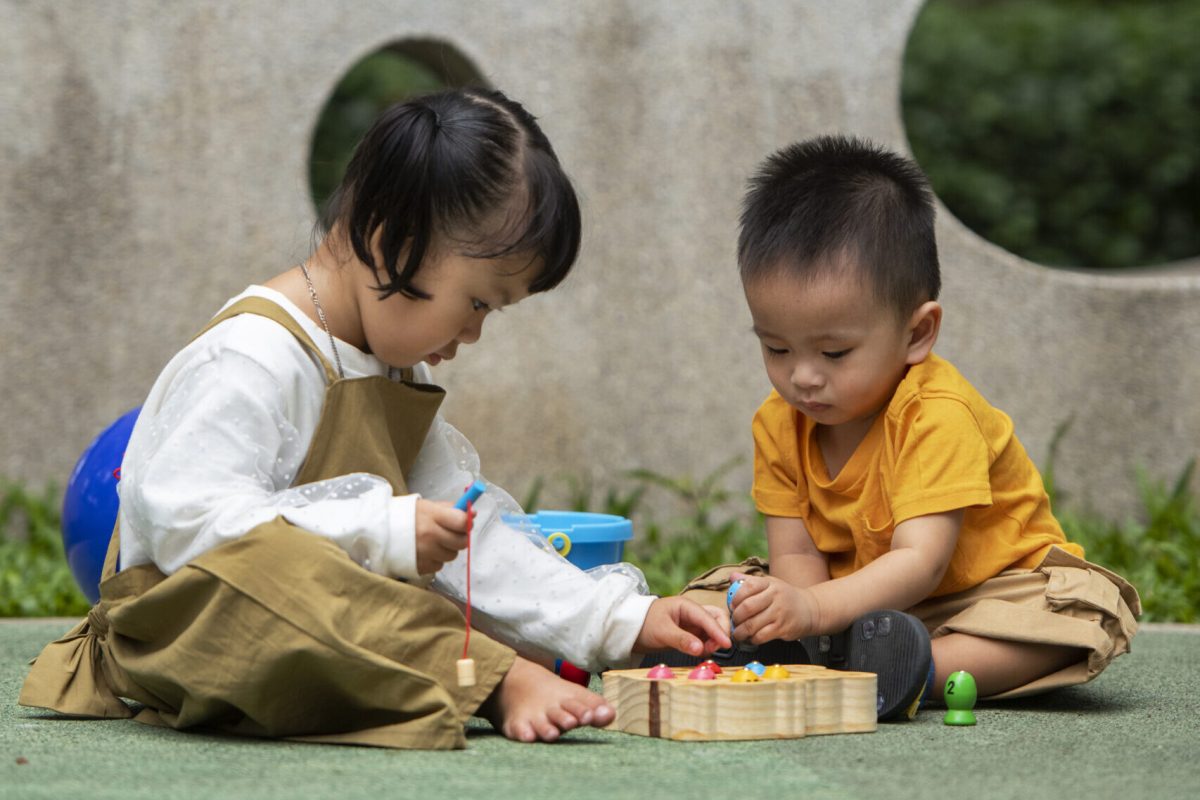This is part 5 of a multi-series article about how to raise a globally competitive child with a positive mindset. In this article, we discuss the importance of a growth mindset and how to cultivate it during early childhood years.
What is a growth mindset?
Growth mindset is a buzzword used around the world. We define a growth mindset as holding the belief that achievements and changes can be attained through confidence, hard work and dedication. People who possess this mindset appreciate progress even though the outcome may not be ideal. In contrast, people with a fixed mindset believe their qualities are fixed and cannot be changed. If one does not succeed now, it is likely because they are not equipped to succeed.
Why is a growth mindset important?
While we do not claim whether a growth mindset is better than a fixed mindset, we at Little Sage strongly believe a growth mindset is more likely to lead our children to eventual happiness and success. While we at Little Sage recognize every person is different, we also know we are the same in that we will all encounter setbacks. And for most people, setbacks are unpleasant. Therefore, we prepare our children early on for the inevitable truth of coping with setbacks. A child who scores 89 / 100 on an exam may feel devastated while one who scores 78 / 100 may be thrilled. The former may feel he is an utter failure because he is bitter about not getting a higher score while the latter is excited about his future because he believes he will do better.
Similarly, I am sure we can identify people who appear to have a lot but yet frequently complain about life while those who have much less are content with what they have. Our mindset forms our expectations which determine fulfilment or emptiness. That is why one may perceive glass as being half full, while another may perceive the same glass as being half empty.

How to cultivate a growth mindset?
We highlighted in our previous series that the age of 5 or 6 forms 90% of the human brain. How we perceive the world around us and situations in our adulthood is primarily developed during early childhood years. Sometimes you see a three-year-old falls and quickly gets back up on his own and continues ahead, while a four-year-old would fall and cry incessantly until somebody helps him up. This is due to mental conditioning. From the moment we wake up to the time we go to bed, our experiences formulate our mindset. Therefore, a growth mindset is best cultivated through experiential learning and conditioning via real-life applications.
Let our children stumble early
Humans, by nature, want to win and dislike discomfort. In life, however, we know defeat and setbacks are inevitable. As we discussed in part 2 of our series, those who will be happier in the long run and be able to take advantage of opportunities when others are not will be those who can embrace setback and discomfort. Having a growth mindset is essential for our children to achieve this. Rather than preempting our children from the bitterness of setback, we as parents should allow them to fail when we can still be by their side. The fact our children are our most precious is why we need them to grasp the famous Chinese idiom “失败乃是成功之母” or “Failure is the mother of success” in their early years. We want our children to comprehend that stumbling is the prerequisite to getting back up and reaching the finish line.
Children will naturally feel frustrated when they can’t achieve something. A young child who fails to put together a jigsaw puzzle after repeated attempts may start to throw tantrums. That is normal. That’s why we, as parents, need to teach our young children to handle their emotions, especially negative emotions such as frustration and anger. We can patiently work on the puzzle with our children by assisting them while letting them trial and error on their own. We can pretend even we as parents find the puzzle to be challenging so the child understands not getting it right is normal.
Focus on the process, not the results
While we have little control over when our children win or lose, we can certainly help them focus on the positives of their experiences. Going back to the previous example of two children who score differently on the same exam, one parent may react to the child who scored 89/100 by asking “what happened to the other 11 percent?” while the parent of child who scored 78 out of 100 may respond by saying “good job. You are getting closer and closer to your goal. Let’s see what we can do to improve from here.” This is why certain people may see a glass as half full while others looking at the same glass may see it as half empty.
Sports is essential to growth mindset
Sports is one of the most effective and natural mediums to cultivate a growth mindset and emotional intelligence. In most sports, there is going to be a winner and a loser. Nobody competes because they want to lose. Cultivating good sportsmanship early is crucial to building a growth mindset. A good sport loses gracefully. To do so, one must embrace defeat and treat it as a stepping stone to future success.
This is a great article on this topic. https://novakdjokovicfoundation.org/winning-losing-important-children/
While young children may not know what losing means, they feel frustrated when they can’t achieve something (e.g. Jigsaw puzzle example earlier or not hitting the ball across the net) and will feel fulfilled when they have accomplished something, such as putting the basketball into the hoop. While fulfilment and growth are a natural human need, it doesn’t mean we should be exasperated when the need is not satisfied. I recall playing mini tennis with my daughter. She threw tantrums when she kept missing the ball. Then the moment she touched the ball, she was ecstatic even though it went straight into the ground. I told her “see, you weren’t able to touch the ball at all last time. After taking so many practice swings, you can finally hit the ball.
If you keep practising, you will only be able to hit more balls.” Simply helping her reflect on her improvement from not hitting anything to something rather than the result of getting the ball over the net got her enthused about playing tennis. While she was able to hit many balls, she eventually figured out she’s supposed to hit the ball over the net. When she couldn’t, she was frustrated. Again, going through the same process, I reminded her how it took her many attempts to touch the ball. Eventually, she will hit it over the net. Unsurprisingly, she was elated when she hit her first ball over the net.
How Little Sage Cultivates Growth Mindset?
One of the missions to founding Little Sage is to cultivate emotional intelligence, which includes the growth mindset necessary to becoming a leader and living a joyful life. Our senior management has spent years coaching CEO’s to become better CEOs as well as coaching those who aspire to be C-level executives from around the world. We have seen many examples of people not suitable to be C-suite executives. They may have excelled academically with an impressive checklist of skills, but they did not possess the growth mindset of a leader. For example, I have seen many founders get ousted by their board of directors because they cringed and even disappeared when confronting obstacles. They were afraid to face their subordinates. On the contrary, we have also seen many budding executives tackling adversity head-on, treating it as an invaluable learning opportunity that will only make the team stronger. Such individuals eventually get promoted to be C-suite executives.
To bring this concept closer to home, we witness these situations in our every day lives. We see this amongst our friends and spouses. Either we possess a mindset believing we can work out kinks if we put in the effort or cannot work because we are just the way we are. Growth mindset doesn’t only impact our careers, but our well-being and how we live our daily lives.
Our Philosophy
As we stated in Part 2 of this series, we educate preschoolers that “life is not about how many times you fall, but how many times you get back up.” One example is while observing a student do worksheets in the classroom, teachers may already know he will get to the wrong answer. However, instead of correcting the child right away, we will let the student go as far as possible to trial and error. Only by getting stuck will he know what it takes to get to the right answer. Thomas Edison, who invented the lightbulb, said, “Many of life’s failures are people who did not realize how close they were to success when they gave up.” Therefore, we always encourage children to try their best first as we prefer they get it wrong than never to try. We also ask them open-ended questions which we find to be effective because children can always come up with answers depending on their own opinion. The process of merely trying to answer such questions requires thinking, courage and trial-and-error. Thus, our global immersion presentation conducted at the end of each term is an effective exercise.
Sage Sports
Sage Sports is a fun and proprietary program that is designed to nourish teamwork, resilience and growth mindset while extending the comfort zone of our students. We design activities, knowing children may stumble. However, the key is whether they can get back up and reach the finish line. During team activities, the key objective is to help the team member get up and reach the finish line together. When our students acclimatize and become comfortable, we introduce new variations, so they become uncomfortable again. But in the process, we remind them how they were able to overcome obstacles in the past only to reach the finish line and receive high fives.
As parents, we should remind ourselves that preschool is probably the only time in life when our children are able to trial and error and stumble without repercussions or embarrassment. That’s why picking a preschool such as Little Sage that embraces such a philosophy is essential to cultivating a growth mindset for the long term well-being of your children.
For more information and a tour, please visit https://littlesagepreschool.com.sg/











